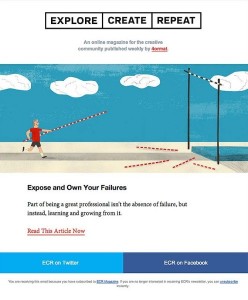— November 27, 2017

geralt / Pixabay
We all long and work towards achieving financial freedom. People have different reasons as to why they start a business. It could be that they have a unique idea, need the flexibility in finding a career that grows with you, or a personal investment.
Whatever your reasons, realizing your vision of a successful business is not that simple. You probably had little challenge in producing a professional high school graduate resume. However, a company has many moving parts that you as the owner or partner needs to keep a keen eye on them.
You may also have a business idea that you have been aching to implement but don’t know how to, here is a simple guide to get you started:
• Research
You have a business idea that you would like to make a reality. Before you do so, you need to pass the view through a validation process. For your small business to be successful, it has to fulfill a need, offer a product/ service that the market wants, or solve a problem.
Thorough research will help you determine the viability of your idea. Don’t let emotions cloud your judgment. Even though you may not be thrilled by the outcome, you will have dodged a bullet.
• Choose the appropriate legal structure
There are mainly three options for small businesses regarding its legal system. It includes sole proprietorship, Limited Liability Company (LLC), or a Partnership. Just as you would take responsibility for your resume for high school graduate, so does the same apply in a sole proprietorship.
In a partnership, the partners share the liability of the business. However getting into a Limited Liability Partnership (LLP), protects against that. Whereas in an LLC, its owners have limited liability.
Choosing a legal structure will help you to determine taxation, risks, registration with the government, etc. A corporation is also an option, but it is suitable for established businesses.
• Have a business plan
You need a plan to guide your business from the startup stage to establishment and growth phase. A one-page outline will suffice for a company that doesn’t require financial support. However, if you will be seeking financial help from investors or lenders, then, you will have to come up with the long, traditional, business plan.
Use it to describe your product or service. Include details about your competition and pricing model, and not to forget, your marketing and sale strategy.
• Understand your product or service
When looking for a reliable entry level resume high school graduate, you will choose one who understands the service they provide. The same applies to the success of the business. You need to have an in-depth understanding of your products or service.
Familiarize yourself with the components or products needed to make the product. Do you offer competitive prices or what makes it unique? It will help you come up with an effective strategy for marketing your services, communicating with your target audience and understanding your customers.
• Accountancy decisions
To efficiently run a business you need to have a reliable accounting system in place. You may have to hire the services of an accountant. An efficient method will lighten the load in creating and managing a budget, file taxes, set prices, and much more.
Various online tools could help you with this. Xero, for instance, does monthly analysis on your business, keeps track of your business’ finances, and much more at the click of a button.
• Insurance
Getting insurance for your business will protect you from the various risks that are business faces in its daily operation. It could be theft, liability or even fire. Shop around for policies that are fine-tuned for your business needs and risks.
Conclusion
There are numerous aspects of a business that you need to deal with to improve the chances of success of your business. Though the list is not exhaustive, it offers you essential tips on where to start.
Business & Finance Articles on Business 2 Community
(80)
Report Post








